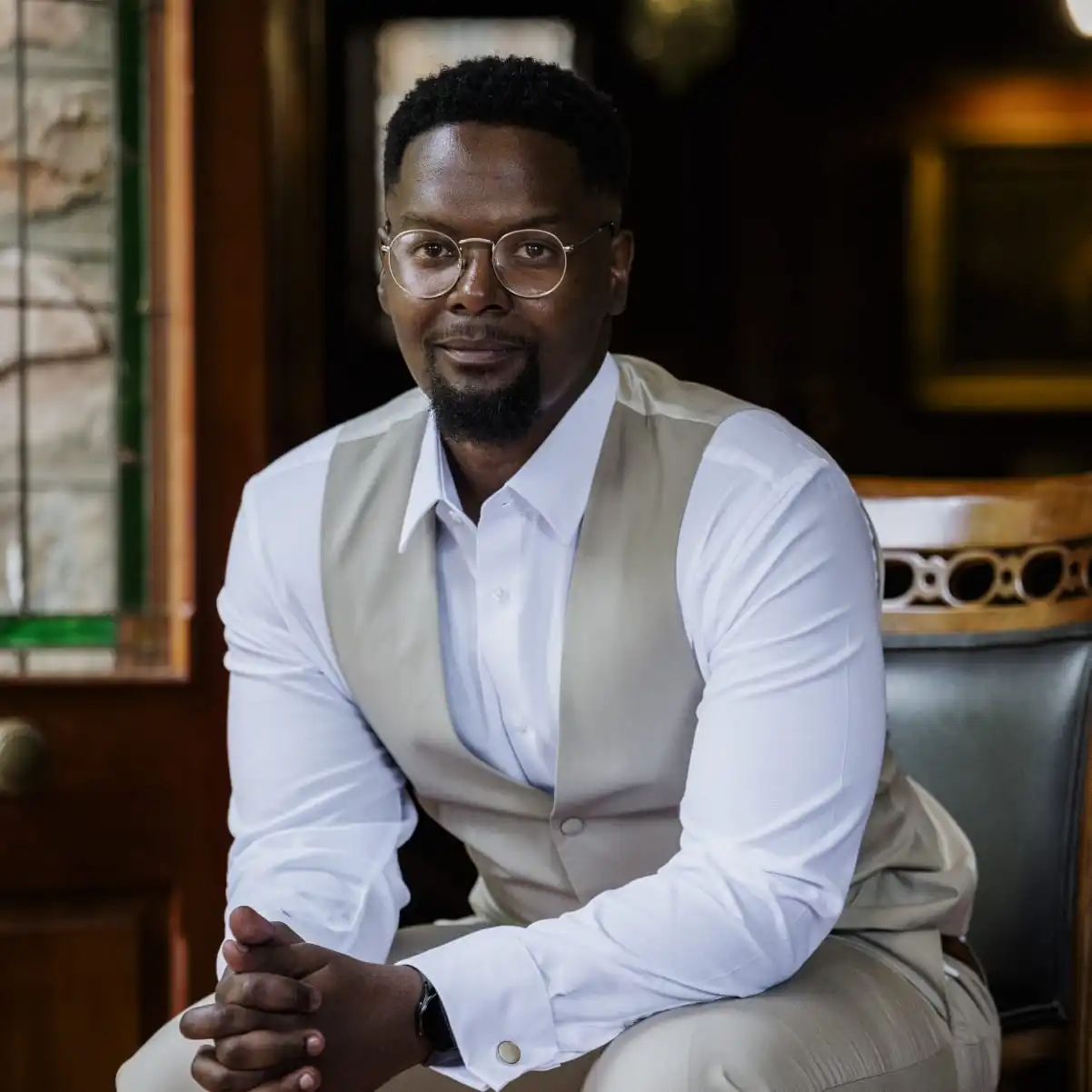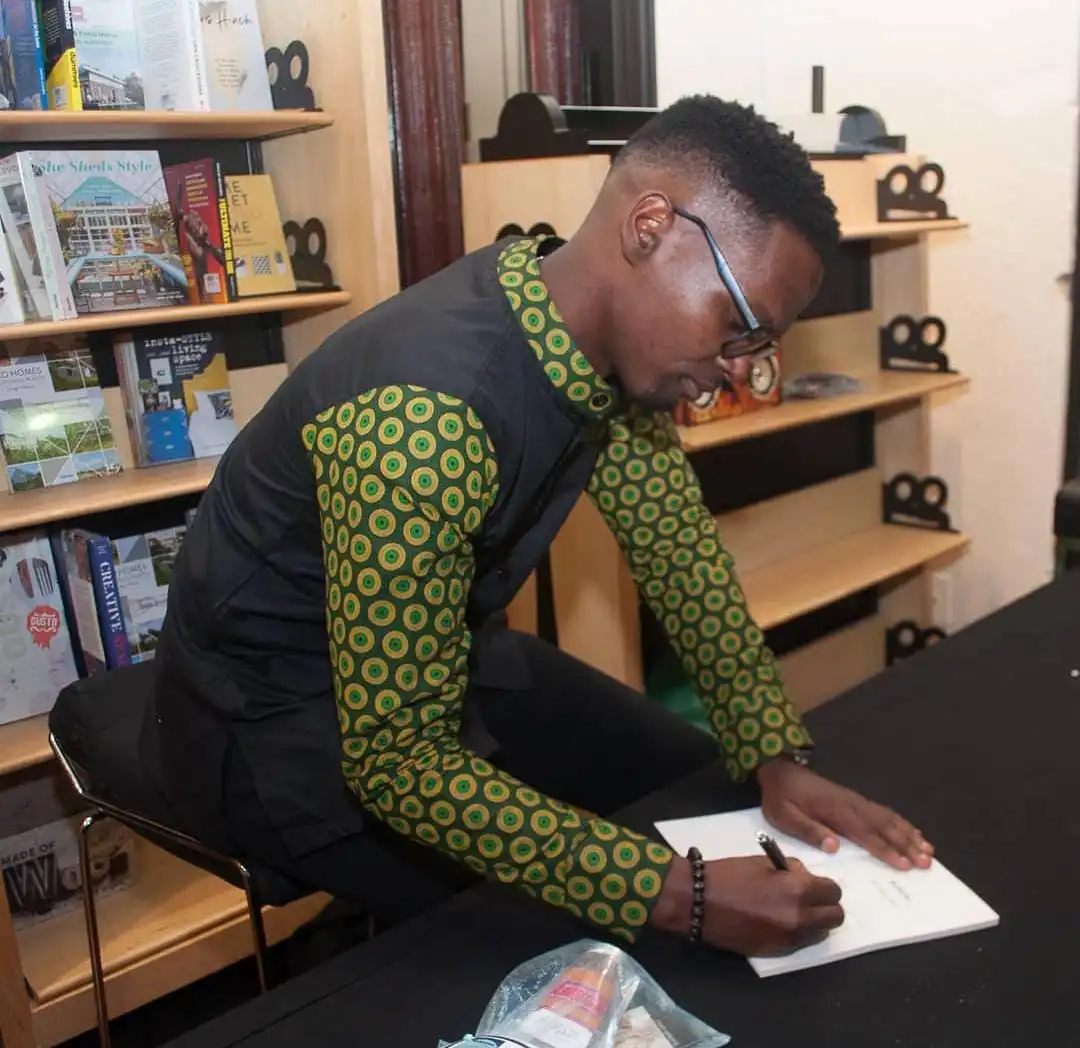
Poet Dali: Honesty, Healing, and the Creative Journey in Johannesburg Poetry
Published on: 11 June 2025
Over the years, we've had the distinct pleasure of hosting countless talented individuals on our stage at our popular poetry nights in Johannesburg. Among them, one poet consistently stands out for his profound vulnerability and captivating honesty: Dali . With two published books under his belt and a history of both performing at and hosting poetry events, Dali is a remarkable writer who truly wears his heart on his sleeve, delving into deep topics such as mental illness, love, and life with unflinching candor.
Recently, I had the opportunity to interview Dali, one of the most honestly captivating poets of Johannesburg, and delve into his creative process, his journey as a writer, and the power of vulnerability in his work. Here’s a glimpse into our conversation:
Beyond the Pen: Who is Dali?
I began by asking Dali how he would introduce himself to someone who might not know him, beyond the labels of "poet" or "author." Here's what he shared:
"I’m someone who turns emotional currency into something you can hold: words. I am a person trying to build himself from all the trauma and broken pieces of my past."
From Solitude to Symphony: The Creative Shift
Dali's first book, Bubbles, is a deeply personal work. He then ventured into a collaborative project with The Tatted Baddie. I was curious about this creative shift for the new book Eternal Echoes.
"Writing Bubbles felt like being alone in a tunnel, painful, intimate, intense and terrifying. Moving into a collab with Tshepo Molefe was learning how to adapt, making room for someone else’s voice and having more fun with the poems. It moved the work from echoing my solitude into a duet, expanding the story’s dimensions."

The Art of Vulnerability: What to Share, What to Keep?
Vulnerability is a hallmark of Dali's writing. I asked him how he decides what to share with readers and what to keep private.
"To be honest nothing is ever private, if you read all my poems, you are reading a part of me. I use my poetry to hide certain aspects of the truth with different pictures but once you see through the images, you feel closer to the story and therefore closer to me. Every person is going through their own hell, your story could be the thing that helps them navigate through the hard times and find a better path."

A Conversation Through Time: Dali Then and Now
I posed a hypothetical question: If the version of him who wrote Bubbles could converse with the current version, what would they say?
"That conversation would probably begin with silence. The version of me who wrote Bubbles was fragile, unsure if vulnerability was strength or weakness, just trying to write to breathe. The first words would come softly. The past me might whisper, 'I nearly drowned in these pages,' and the present would answer, 'But look, you found air.' Maybe the earlier me would admit, 'I didn’t know I’d survive it,' and the me now would simply say, 'Thank you for not hiding.' It would be a moment of unspoken understanding between the one who endured the storm and the one who now breathes a little easier, carrying both the pain and the grace that followed."
When Words Surprise: The Genesis of "Dear Violet"
Has there ever been a moment in his writing when a line or poem surprised him, coming from a deeper place than expected? Dali recalled "Dear Violet."
"Yes, the poem was Dear Violet. I’ve been writing poems for years, but none challenged me like that one. It took me three months just to write four lines, if I was lucky. It wasn't about writer’s block; it was emotional resistance. Dear Violet came from such a raw place, and every word had to be earned."
He shared a line that still resonates with him:
“You were my favourite umbilical cord that I could never cut.”
"It holds so much," he elaborated, "love, grief, attachment, the impossibility of letting go."

Rhythm or Honesty: Which Comes First?
Finally, for local writers still finding their voice, I asked Dali what he prioritizes: rhythm or honesty.
"For local writers still finding their voice, I’d say: start with honesty. Always. Rhythm is important, it gives your work flow, music, movement, but honesty is what gives it weight. Without truth, rhythm and performance are just decoration. Readers might admire the sound of your lines, but they won’t feel them unless there’s something real underneath."
"Your voice is born from your truth, not your technique. So write the messy, raw, unfiltered things first. Let your performance come from how you speak, how you feel. You can always refine the craft, but you can’t fake sincerity, not in poetry, and not in life."
Dali's insights offer a profound look into the heart of a poet. His dedication to honesty and vulnerability not only defines his work but also serves as a powerful reminder of the transformative power of sharing one's truth. We are incredibly grateful for his continued presence in our community and look forward to the many more stories he has yet to tell at our upcoming poetry nights in Johannesburg.